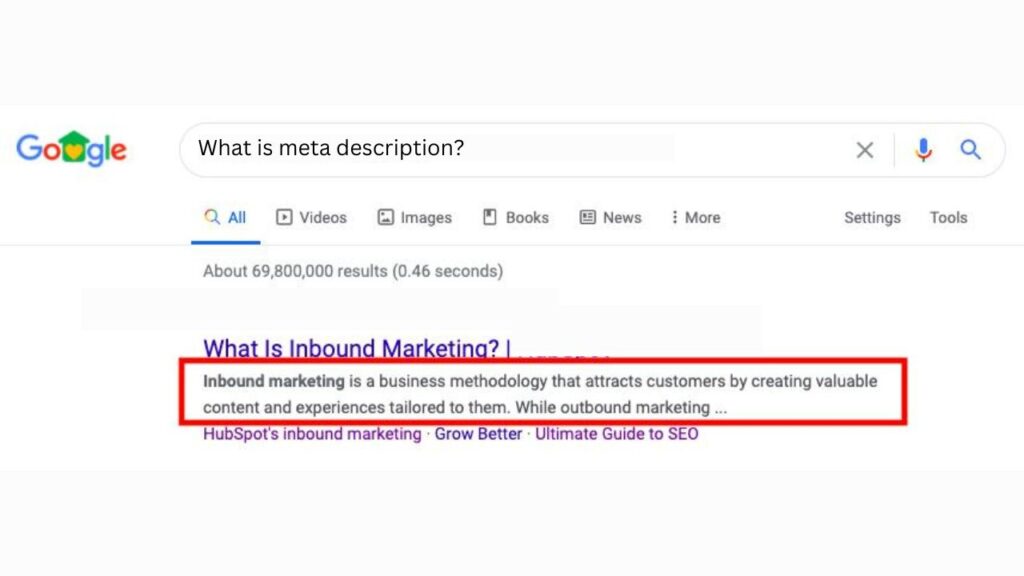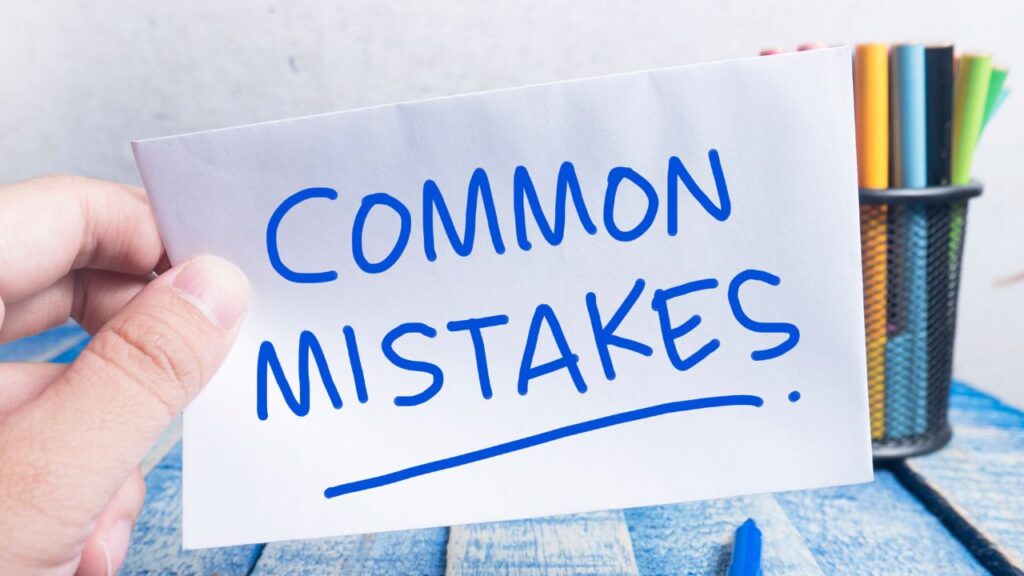Your meta description is one often-overlooked component that can make or break your website’s exposure in the huge realm of digital marketing, where every click matters.
It’s likely that you’ve heard of it, but are you taking full advantage of it? Let’s get started on creating the ideal SEO meta description that will improve your entire SEO strategy and increase your click-through rate (CTR).

What is an SEO Meta Description?
Let’s go over the fundamentals first before getting into the specifics of crafting the ideal meta description. A summary of a webpage’s content, often ranging from 150 to 160 characters, is known as an SEO meta description.
Search engine results pages (SERPs) display it beneath the title tag as an overview of the content users might expect when they click on your link.
Why Meta Descriptions Matter
“Does a meta description really impact my SEO?” is probably what you’re wondering. Without a doubt, the answer is yes! Although they don’t directly affect ranking, meta descriptions have a big impact on user behavior.
Your CTR, or click-through rate, tells search engines that your material is worthwhile and pertinent. A strong meta description will help you achieve this. This has the potential to raise your ranks over time.
Crafting the Perfect Meta Description
So how can you craft a meta description that supports your SEO objectives while also drawing clicks? Here is a detailed how-to.
1. Recognise Your Audience
To write a meta description that works, you must first identify who your target audience is. What are they trying to find? Which issues are they attempting to resolve? These queries should be answered in your meta description, along with a guarantee of success.
2. Include Principal Keywords
Despite not being direct ranking criteria, using primary keywords is still quite important. Google will bold these terms in your meta description to draw attention to your link when users search for them. But stay away from keyword stuffing and concentrate on appropriate and natural usage.
3. Be Specific and Concise
With approximately 150–160 characters available, each word matters. Ensure that your meta description is clear, precise, and succinct. Steer clear of ambiguous wording and directly address the advantages or main ideas of your material.
4. Make a call to action and use active voice
A dynamic voice is more captivating and convincing. To help the reader decide what to do next, combine this with a compelling call to action (CTA). Phrases such as “Discover the best,” “Learn how to,” or “Find out more” are effective in drawing users to click on your link.
5. Emphasise your USPs (unique selling points)
What distinguishes your material from others? Make sure your meta description highlights your unique selling points (USPs), whether they be professional insights, in-depth guides, or insider recommendations. This offers the user value in addition to piqued curiosity.
6. Avert Using Repeated Metadata
Your website should have a distinct meta description for every page. Duplicate meta descriptions can cause confusion for both visitors and search engines, lowering the click-through rate and perhaps jeopardizing your SEO efforts.
7. Examine and refine
Meta descriptions should be checked and improved over time, much like any other SEO component. Utilise resources such as Google Search Console to track your CTR and make any modifications. Performance can be significantly improved with small adjustments.

Common Mistakes to Avoid
When writing meta descriptions, it’s simple to make some frequent mistakes, even with the best of intentions. Here are some common errors to avoid:
1. Keyword Overstuffing
Although keywords are vital, stuffing your meta description with too many of them might make it appear spammy and discourage users from clicking.
2. Having Too Much Ambiguity
A too general or ambiguous meta description will not persuade users to click. Give specifics about the benefits and features of your article for the reader.
3. Disregarding the Character Count
If you go above the allotted character count, your meta description will be shortened, possibly removing significant details. To make sure your message is comprehensive and understandable, adhere to the 150–160 character limit.
4. Neglecting Mobile Users
Make sure your meta descriptions are optimized for mobile devices, as over 50% of website traffic originates from these devices. Make them engaging and succinct for mobile users.
5. Failing to Reflect Page Content
The information on the page should be appropriately reflected in your meta description. Inaccurate descriptions have the potential to decrease user trust and increase bounce rates.

Examples of Effective Meta Descriptions
Sometimes following an example is the greatest way to learn. Here are some instances of meta descriptions that meet all the necessary criteria:
“Learn how to write the perfect SEO meta description that boosts your CTR and enhances your SEO strategy with our step-by-step guide.”
“Discover the top 10 tips for crafting meta descriptions that attract clicks and improve your search engine rankings.”
“Find out how to create compelling meta descriptions that stand out in search results and drive more traffic to your site.”
These examples are all succinct, naturally integrate keywords, and have a clear call to action (CTA).
The Role of Meta Descriptions in Overall SEO Strategy
Meta descriptions are an essential part of your entire SEO strategy, even if they are only one component of the jigsaw. Consider them as the entry point to your content; they represent your first, and maybe your only, opportunity to persuade a user to visit your website. In addition to increasing traffic, a well-written meta description establishes the tone for the user experience that comes next.
Final Thoughts
Understanding your target, creating a captivating message, and continuously optimizing for better results are all important components of writing the ideal SEO meta description. It’s not simply about stuffing words into a text box.
You’ll be well on your way to writing meta descriptions that not only encourage clicks but also advance your larger SEO objectives if you heed the advice and steer clear of the mistakes this tutorial outlines.
FAQ’s
What is an SEO meta description?
An SEO meta description is a succinct synopsis of a webpage’s content that shows up in search engine results beneath the title tag and is meant to persuade readers to click on the link.
How long should a meta description be?
A meta description should be between 150-160 characters to ensure it displays fully in search engine results without being cut off.
Do meta descriptions affect SEO rankings?
While meta descriptions aren’t a direct ranking factor, they influence CTR, which can impact overall SEO performance.
Can I use the same meta description for multiple pages?
No, each page should have a unique meta description to avoid confusion and potential SEO issues.
What should I include in a meta description?
To promote clicks, include the page’s main keywords, a synopsis of the material, and a call to action.


Your blog is like a beacon of light in the vast expanse of the internet. Your thoughtful analysis and insightful commentary never fail to leave a lasting impression. Thank you for all that you do.
Your article helped me a lot, is there any more related content? Thanks!
Your point of view caught my eye and was very interesting. Thanks. I have a question for you.